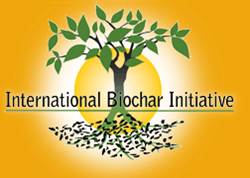You know that feeling of excited anticipation you get when something arrives after you have been waiting for days or weeks? I get that feeling every time the International Biochar Initiative (IBI) newsletter arrives in my email box. Why? Because I love to see the list of newly published biochar research which takes up an ever growing section of the newsletter.
Yesterday the newsletter arrived in my email box and I was oh-so-tempted to put everything else on hold so I could glance through it immediately. The problem is that glancing isn’t really possible anymore because the list of papers gets longer and longer with every newsletter. This latest newsletter cited more than 200 new publications!
Publications include everything from peer reviewed journal articles to books, to graduate student theses to materials from meetings or conferences. Newly published research comes from more than a dozen different countries from around the world including, to name a few: Australia, Bangladesh, Brazil, Canada, China, Ethiopia, Finland, Germany, Ghana, India, Italy, Korea, Malaysia, Nigeria, the UK and the USA. They cover an ever increasing variety of biochar related topics such as: climate change mitigation, soil impact, yield impacts, remediation, filtration, waste management, renewable energy, and various different biochar production technologies and how they impact the characteristics of biochar. The feedstocks used for biochar production ranges ever more widely and just this past month included: rice, bamboo, sewage sludge, water hyacinth, straw, tobacco stalks, and a few I’d never even heard of such as sea mango and arecanut! The crop trials are nearly as diverse as the feedstocks covering cotton, rice, maize, wheat, peppers and many, many more!
As an IBI Board Member, as a biochar researcher and as a citizen fully engaged in finding financially viable, environmentally safe and scalable solutions to climate change, I believe this is one of several hugely valuable services that IBI has been providing over the past several years. Right now they could use some financial support to keep on providing it. Please join me in making a tax deductible donation here to IBI.
The on-going curation of this biochar research bibliography is an excellent service, but the biochar community, the agricultural community and many other related communities could see much more rapid progress if we were able to expand this function even further. In a future post I’ll address how tapping into the power of indirect communication similar to how a smart swarm works, might be a great way to discuss, edit, share, and organize the ever increasing amount of knowledge and research coming out of biochar labs, fields and production facilities!


